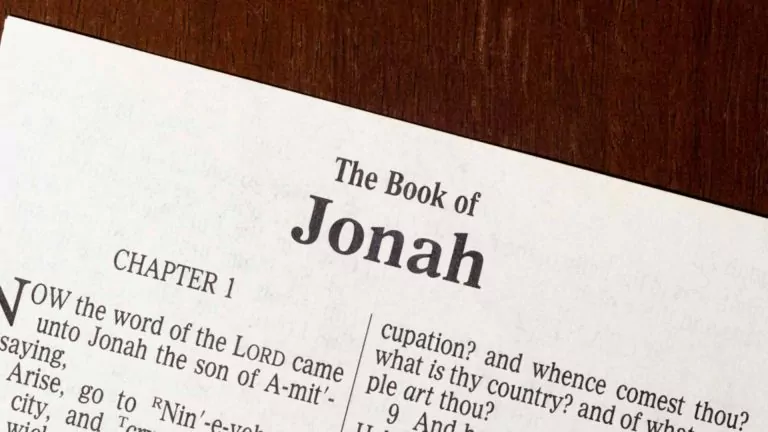We will be looking at Jonah, the likely author of this book, who is a minor prophet, living in the eighth century B.C. during the reign of Jeroboam II who ruled the northern kingdom from 782 to 753 BC (see II Kings 14:23-28).
During this era of Israel’s history, the nation was doing well materially, enjoying peace and prosperity, but was not doing well spiritually. The tragic thing about this epoch in Israel’s history is that although the Lord had been good to Israel and had lavished a super-abundance of blessing upon the nation, their expression of gratitude was missing. They had forgotten the Lord’s grace. 2 Kings 14 states that Jeroboam II did evil in the sight of the Lord.
The warning of Deuteronomy 6:10-14 hadn’t been remembered and heeded. When they would reach the promised land, get settled, and eventually become prosperous, they would be prone to forget all the blessings and gifts from the Lord. This forgetfulness would show itself in disobedience to the Lord.
The book of Jonah is a word of warning to God’s covenant people about the danger of taking God’s grace and favour for granted and failing to live in obedience and thankfulness to Him. Despite this, the Lord still blessed the nation, demonstrating his mercy in this period of prosperity and peace. He was giving Israel time to repent, to turn from their wickedness and turn back to the Lord.
Surprisingly Jonah doesn’t hide his failures in this story but puts his sins on full display for all to see. After living through all these events, Jonah became transformed by God’s grace. Eventually, he understood God’s superabundant, extravagant, and indelible grace more fully, personally, experientially, and wonderfully and wanted the world to know and love this Gracious God
The runaway prophet
“Now the word of the LORD came to Jonah the son of Amittai, saying, “Arise, go to Nineveh, that great city, and call out against it, for their evil has come up before me.”” – Jonah 1:1-2
“And should not I pity Nineveh, that great city, in which there are more than 120,000 persons who do not know their right hand from their left, and also much cattle?”” – Jonah 4:11
Scripture reading: Jonah 1:1-2, 4:11
Who is the story of Jonah about? Who is the leading actor in the book of Jonah? Who sets the stage, dominates the scenes and directs the events?
Our first impulse might be to say “Jonah,” for indeed, the title of the book is attributed to his name. The events of this story are focused on the life and times of this prophet from Israel.
If you ask a roomful of children about the main character in Jonah, they might exclaim, “the fish!” Undoubtedly, the fish makes the story memorable, and it’s a “whale of a tale”, but the fish is a mere puppet in the hands of the puppeteer.
What is the Lord doing in the book of Jonah? What is God saying? The first opening lines direct us to that question, as God has the first word (1-2) and the last word in this book (4:11). God is the one who is in sovereign control, and He is moving and orchestrating all these events.
The first phrase in the book of Jonah “the word of the Lord came” is a common phrase used in the Old Testament to indicate that God is saying something important to his people. God has an important message for us in the book of Jonah. It teaches us about the sovereignty of God, His incredible love and the heart of God for lost people. Are we ready to hear and apply what the Lord says to us through Jonah?
Suggestions for prayer
Pray that you would receive the Word of the Lord in faith and belief.
Pastor Jeremy Veldman is the co-pastor at Rehoboth United Reformed Church in Hamilton, Ontario, serving as Minister of Congregational Life. Get this devotional delivered directly to your phone each day via our RP App. It is also available in print, for purchase, at NTGDevotional.com.











